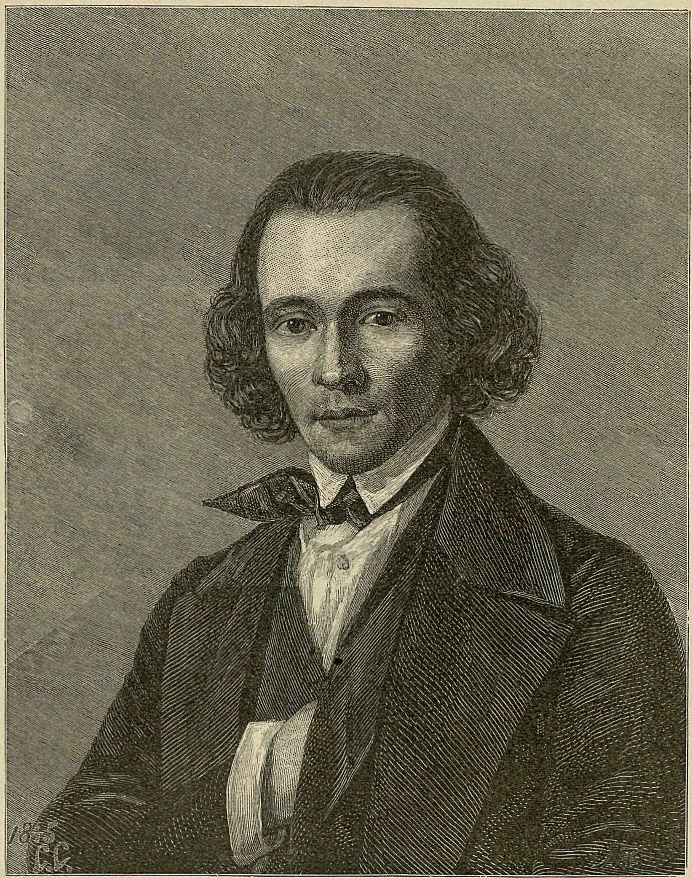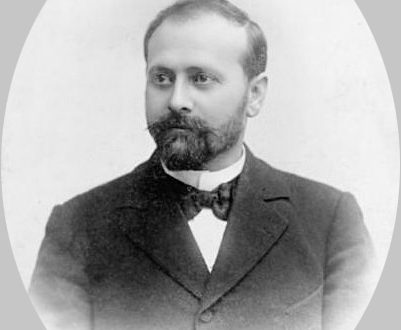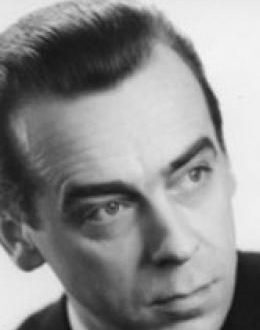
Alexander Nikolayevich Serov (Alexander Serov) |
Alexander Serov
His whole life was a service to art, and he sacrificed everything else to him … V. Stasov
A. Serov is a famous Russian composer, an outstanding music critic, one of the founders of Russian musicology. He wrote 3 operas, 2 cantatas, orchestral, instrumental, choral, vocal works, music for dramatic performances, arrangements of folk songs. He is the author of a significant number of musical critical works.
Serov was born into the family of a prominent government official. From early childhood, the boy showed a variety of artistic inclinations and hobbies, which were encouraged in every possible way by his parents. True, much later, the father will sharply oppose – up to a serious conflict – his son’s musical studies, considering them absolutely unpromising.
In 1835-40. Serov studied at the School of Law. There he met V. Stasov, which soon grew into an ardent friendship. The correspondence between Serov and Stasov of those years is an amazing document of the formation and development of future luminaries of Russian musical criticism. “For both of us,” Stasov wrote after Serov’s death, “this correspondence was very important – we helped each other to develop not only in music, but in all other respects.” In those years, Serov’s performing abilities also showed up: he successfully learned to play the piano and cello, and he began to master the latter only at the school. After completing his education, his career began. The Senate, the Ministry of Justice, service in Simferopol and Pskov, the Ministry of the Interior, the St. Petersburg Post Office, where he, who was fluent in several European languages, was listed as a censor of foreign correspondence – these are milestones from Serov’s very modest career, which, however, did not have, however, for him, with the exception of earnings, any serious value. The main and determining factor was music, to which he wished to devote himself without a trace.
Serov’s composing maturation was difficult and slow, this was due to the lack of proper professional training. By the beginning of the 40s. include his first opuses: 2 sonatas, romances, as well as piano transcriptions of the great works of J. S. Bach, W. A. Mozart, L. Beethoven and other classical composers. Already at that time, Serov was fascinated by opera plans, though they remained unfulfilled. The most significant of the unfinished works was the opera “May Night” (after N. Gogol). Only one episode of it has survived to this day – Ganna’s Prayer, which was Serov’s first work, performed in a public concert in 1851. In the same year, his debut in the critical field took place. In one of his articles, Serov formulated his task as a critic: “Musical education among the mass of Russian readers is extremely rare… try about the spread of this education, we must also take care that our reading public has the right ideas about all, although the most important aspects of the musical art, since without this information any correct view of music, its composers and performers is impossible. It is interesting that it was Serov who introduced the term “musicology” into Russian literature. Many topical issues of modern Russian and foreign music are raised in his works: the work of Glinka and Wagner, Mozart and Beethoven, Dargomyzhsky and the composers of the Mighty Handful, etc. At the beginning of the formation of the New Russian Music School, he was closely associated with it, but soon Serov and the Kuchkists parted ways, their relations became hostile, and this led to a break with Stasov.
The stormy publicistic activity, which took up a lot of Serov’s time, nevertheless did not weaken his desire to compose music. “I have brought myself,” he wrote in 1860, “some notoriety by making a name for myself with music critics, writing about music, but the main task of my life will not be in this, but in musical creativity“. 60s became the decade that brought fame to Serov the composer. In 1862, the opera Judith was completed, the libretto of which was based on the play of the same name by the Italian playwright P. Giacometti. In 1865 – “Rogneda”, dedicated to events from the history of Ancient Russia. The last opera was The Enemy Force (death interrupted the work, the opera was finished by V. Serova, the composer’s wife, and N. Solovyov), created based on the drama of A. N. Ostrovsky “Do not live as you want.”
All Serov’s operas were staged in St. Petersburg at the Mariinsky Theater and were a resounding success. In them, the composer tried to combine the dramatic principles of Wagner and the emerging national operatic tradition. “Judith” and “Rogneda” were created and first staged on the stage at that turn, when the brilliant stage creations of Glinka and Dargomyzhsky were already written (except for “The Stone Guest”) and the operas of the “Kuchkist” composers and P. Tchaikovsky had not yet appeared. Serov failed to create his own finished style. There is a lot of eclecticism in his operas, although in the best episodes, especially depicting folk life, he achieves great expressiveness and brilliance. Over time, Serov the critic overshadowed Serov the composer. However, this cannot cross out the valuable that is in his music, really talented and original.
A. Nazarov





